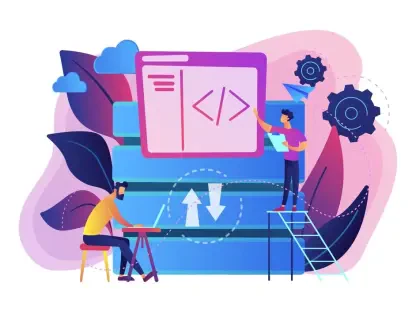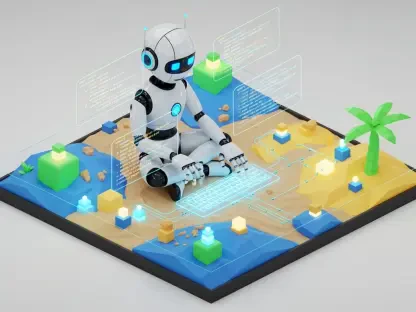In the fast-paced world of software development, where deadlines loom large and complexity grows with every project, developers often find themselves bogged down by repetitive tasks that drain creativity and time. Picture a scenario where a single bug in a sprawling codebase halts progress for hours, or where crafting boilerplate code feels like an endless chore. This is the reality for many in the industry, with studies showing that developers can spend up to 40% of their time on mundane, non-creative work. Enter OpenAI’s Codex CLI, a command-line interface tool powered by the advanced GPT-5-Codex model, designed to revolutionize how coding is approached by automating the tedious and amplifying the innovative. This review dives deep into what makes this technology a potential turning point for programmers everywhere.
Unveiling the Power of AI in Coding
Codex CLI stands as a beacon of innovation in the realm of AI-assisted development. Built on the robust foundation of the GPT-5-Codex model, this tool integrates seamlessly into a developer’s workflow through a terminal-based interface. It acts not just as a utility but as a collaborative partner, offering real-time suggestions and solutions directly within the command line. The significance of such a tool cannot be overstated in an era where efficiency dictates success, positioning Codex CLI at the forefront of transforming mundane coding tasks into streamlined processes.
The growing reliance on AI to bolster productivity in software development highlights the relevance of this technology. Unlike traditional coding aids, Codex CLI bridges the gap between human intent and machine execution, understanding context and adapting to specific needs. Its emergence aligns with a broader industry trend toward automation, promising to redefine how developers tackle both routine and complex challenges. This review aims to unpack the layers of functionality that make this tool stand out in a crowded field of development aids.
Dissecting Key Features
Simplified Setup and Broad Accessibility
One of the standout aspects of Codex CLI is its straightforward installation process. Available through familiar package managers like npm or brew, setting it up is as simple as executing a single command, followed by a quick login with a ChatGPT account. This ease of access ensures that developers, regardless of experience level, can jump right into using the tool without navigating cumbersome setup hurdles.
Beyond installation, the design prioritizes user-friendliness. The interface is intuitive, catering to both novices learning the ropes and seasoned professionals seeking efficiency. This accessibility democratizes advanced AI assistance, breaking down barriers that often accompany cutting-edge tech and making powerful coding support available to a wider audience.
Robust Security Customization
Security remains a critical concern for developers integrating AI tools into their workflows, and Codex CLI addresses this with customizable file permissions. Users can select from options like Read-only, Auto, or Full Access, granting precise control over what the AI can interact with on their systems. This flexibility builds trust, particularly for those wary of potential vulnerabilities.
Such features cater specifically to security-conscious individuals who prioritize safeguarding their codebases. By allowing tailored access levels, the tool ensures that sensitive data remains protected while still delivering the benefits of AI assistance. This balance between functionality and safety is a key pillar of its appeal in professional settings.
Enhancing Workflow Efficiency
Codex CLI goes beyond basic assistance with features crafted to optimize developer workflows. Session continuity allows seamless task switching without losing context, a boon for multitasking environments. Additionally, adjustable AI reasoning levels enable users to dictate the depth of assistance, from quick fixes to in-depth problem-solving.
Another notable feature is the transcript mode, which provides detailed insights into the AI’s execution process. This transparency aids in understanding and optimizing code, reducing errors and improving output quality. Together, these tools minimize disruptions, ensuring that developers can maintain focus on creative aspects rather than getting mired in logistical setbacks.
Performance in Real-World Scenarios
Codex CLI proves its mettle across a diverse array of development contexts, showcasing versatility that appeals to a broad spectrum of users. From automating repetitive tasks like generating boilerplate code to aiding in the construction of intricate web applications, the tool adapts effortlessly to varying demands. Its ability to assist in enterprise system development further underscores its scalability for large-scale projects.
Specific use cases highlight its practical value. For instance, in debugging, it excels at log analysis, swiftly identifying issues that could otherwise stall progress. In machine learning initiatives, it streamlines data integration, simplifying complex workflows. Even in niche areas like multiplayer game development, Codex CLI offers tailored support, bridging skill gaps and enhancing output across the board.
The tool’s capacity to support both beginners and advanced developers is particularly noteworthy. For newcomers, it provides a gentle learning curve through guided assistance, while experts benefit from deep customization and integration capabilities. This adaptability ensures that it remains a valuable asset regardless of the user’s proficiency or project scope.
Industry Trends and AI Integration
The rise of AI-driven tools like Codex CLI mirrors a significant shift in software development toward automation and real-time support. Developers increasingly turn to terminal-based solutions for their efficiency, a trend that this tool capitalizes on by embedding powerful AI directly into the command line. This integration reflects a broader movement within the tech industry to reduce friction in coding processes.
OpenAI’s contributions through Codex CLI underscore its leadership in this transformative space. By prioritizing seamless interaction and practical application, the tool aligns with the industry’s push to augment human capability rather than replace it. This approach fosters a symbiotic relationship between developers and technology, enhancing productivity without diminishing the role of human ingenuity.
Emerging user behaviors also point to a growing comfort with AI assistance in everyday tasks. As developers lean on such tools for quick access to resources and documentation via terminal-based web searches, the demand for intuitive, integrated solutions continues to rise. Codex CLI stands as a prime example of how AI can meet these evolving needs with precision and foresight.
Navigating Challenges and Limitations
Despite its strengths, Codex CLI is not without hurdles that may impact user adoption. Customizing AI interactions can present a learning curve, particularly for those unfamiliar with fine-tuning such tools. Striking the right balance between automation and human oversight also poses a challenge, as over-reliance on AI could risk diminishing critical thinking skills.
Technical integration issues may arise when pairing Codex CLI with niche frameworks or legacy systems. Compatibility concerns in these scenarios could limit its effectiveness, requiring developers to adapt their environments or seek workarounds. Such obstacles highlight the importance of ongoing refinement to ensure broader applicability across diverse tech stacks.
OpenAI continues to address these limitations through iterative updates and community feedback. Efforts to enhance accessibility and resolve integration bottlenecks are underway, signaling a commitment to making Codex CLI a more robust solution. These initiatives aim to smooth out rough edges, ensuring the tool evolves in tandem with user needs and industry demands.
Looking Ahead: The Future of AI in Development
The potential evolution of Codex CLI holds exciting prospects for the development community. Enhancements in AI reasoning capabilities could lead to even more nuanced assistance, while expanded language support might cater to an even wider global audience. Deeper integration with deployment platforms like Vercel could further streamline the journey from code to production.
Long-term, tools like this could reshape the skill landscape for developers, emphasizing creative problem-solving over rote memorization of syntax. This shift might foster greater innovation, as repetitive burdens are lifted, allowing focus on novel ideas. Beyond coding, such AI advancements could influence education by democratizing access to programming knowledge, empowering new generations of creators.
Speculation on cross-industry impact suggests that Codex CLI’s principles might inspire solutions in fields like data science or cybersecurity. As AI tools become more pervasive, their ability to simplify complex tasks could redefine workflows far beyond software development. This trajectory points to a future where technology and human expertise collaborate more closely than ever before.
Final Reflections on an Innovative Tool
Looking back, the exploration of OpenAI’s Codex CLI revealed a tool that significantly elevates developer productivity through intelligent automation and thoughtful design. Its user-friendly setup, robust security options, and versatile applications across coding scenarios stood out as defining strengths. Despite challenges like integration issues and customization complexities, its performance left a strong impression of reliability and potential.
Moving forward, developers are encouraged to experiment with Codex CLI in their workflows, leveraging its capabilities to tackle repetitive tasks and explore creative solutions. Keeping an eye on OpenAI’s updates promises to yield even greater benefits as limitations are addressed. As a next step, integrating this tool into collaborative team environments could unlock new efficiencies, paving the way for broader adoption and innovation in coding practices.









